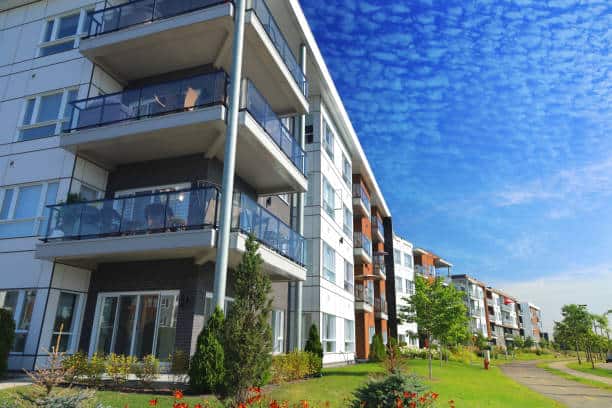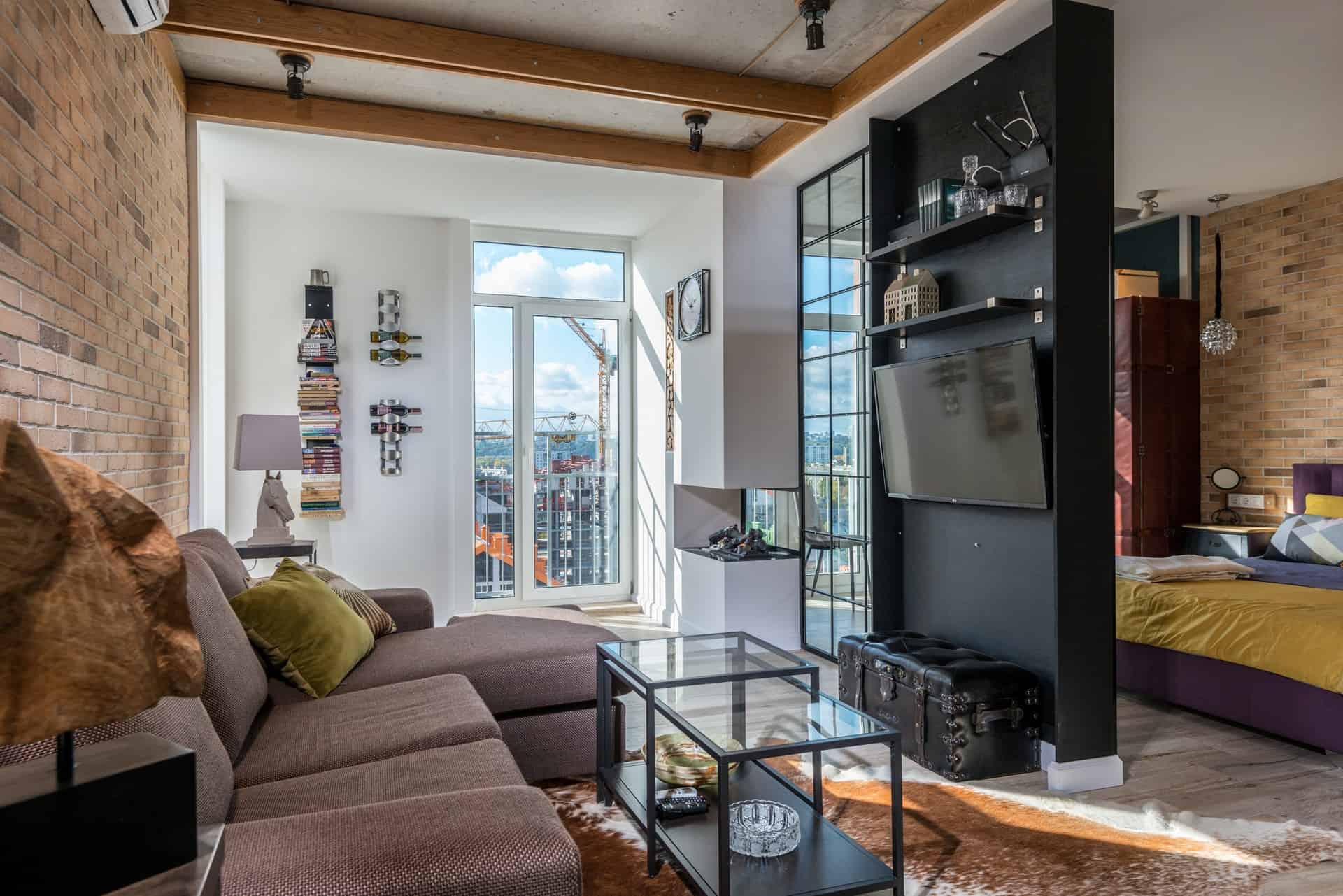Apartment hunting is not an easy task, especially when you have a family or roommates to consider. It can be hard to find that perfect apartment that fulfills everyone’s needs and requirements.
There is a lot more to consider than just the monthly rent payment; the right apartment should be suitable for your living situation and goals for the future.
How Do You Start Apartment Hunting?
Some may start their search with the first apartment building or apartment complex that they see in a certain area. When touring apartments, however, one needs to question property managers, talk to a leasing agent, and be ready for a few compromises.
It is always best to do your homework before you start visiting apartments or contacting the property manager of any apartment complex. Take some time out to calculate just how much rent you can comfortably afford on a monthly basis. Factor in the utility costs, pet deposit (if any), security deposits (find out what is a security deposit for an apartment here), and other potential costs. This practice will prepare you for the financial aspect of selecting any potential apartment.
How to Choose an Apartment to Rent

Of course, the financial side of the matter is just one important aspect to consider. The rental budget and other considerations are worth looking at before you venture out to any apartment complexes. Let us have a look at most of these now:
1. A Heavy Emphasis on Location
Location is among the most essential factors when you are deciding on a new apartment. You may have a certain location in mind already, especially if you are trying to figure out how to find an apartment in a new city.
The location of your new apartment will determine many aspects of your life for at least the next year (assuming a standard 12-month lease). Just a few of these include:
Safety and Security in Daily Life
Everyone wants a certain level of stability and safety in their daily routine. Those who have kids might place an especially high importance on this factor. They would want their kids to go to school safely and play outside without worrying about anything untoward happening. The same goes for an individual living alone, retirees, or anyone who can be deemed vulnerable.
Proximity to a Decent Education
Whether a family member is going to school or college, having a good educational institution nearby is always a boon. Kids and college students alike will find it convenient to have their school close by, as it will cut down on commute time and reduce the hassle of their daily routine. It may be possible to include this requirement when you browse these websites to search apartments for rent.
Transportation Facilities
Easy access to public transportation will shorten your work commute on a daily basis. It will also make it easier to visit the shops, nearby cities, or anywhere else you want to reach.
Lower Rental Rates
The nearer you get to the major cities, the more expensive housing gets, but again, having a good location helps out. Now that remote working is so common, it might be convenient for you to check out the outer suburban areas, or even rural locations. Such areas will probably get you lower monthly rent, more square footage, and other perks, such as clean, natural surroundings.
In some locations, it may even be possible to find an apartment without a broker.
2. A Suitable Apartment Complex or Building
Once you have narrowed down the most likely location for your needs, it is time to check out the most suitable apartment complexes around the area. There will be several kinds of buildings with apartments to rent out there, so check them out to see if they fit your needs. There might be small home-like boutique blocks, huge towers with all kinds of facilities, or a whole complex with a tightly knit community. The by-laws and rules of each option may be different, so make sure to ask the property manager about the following points:
The Pet Policy
A pet can be as important as human family members; if you have one or want one, ensure that the apartment complex will allow it. The landlord’s permission is the first step, but you also need to ask about the fees for keeping a pet. In addition to the pet deposit, there might be rules and charges for certain breeds, potential damage, and how the pet affects the other residents, so be sure to review the apartment pet policy in great detail.
Rules and Regulations about Different Areas
Some apartment buildings might have several rules about various activities. Make sure that you read up on all the by-laws beforehand and see if you can follow them properly. Just a few limitations might include:
- Not hanging the washed clothes on your balcony
- Certain restricted timings for the gyms, laundry facilities, barbeque areas, etc.
- Rules about drilling, hammering, renovations, etc.
- Rules about noise levels, disruption, etc.
The Overall Tone and Atmosphere
How does a certain apartment building feel to you? Does the sight of children running about warm your heart and tell you that it is a family-friendly place? Or does all that noise mean a constant disturbance when you are trying to study, work from home, or just have some well-deserved rest? Learn how to deal with noisy apartment neighbors here.
At the end of the day, families will probably like the idea of having other families in their close proximity. People who are into gardening or saving the planet will appreciate a composting system, garden beds (on the roof if not the ground), or a gardening club.
Even if you are fairly neutral about the kind of atmosphere in a building, you may get a sense that it is poorly managed. The wall paint might be uneven and certain neglected areas could be eyesores, but all-in-all, it is up to your own feeling about the place.
3. Choosing the Right Apartment
Do not just leave your search when you have found the right building; always insist upon seeing the unit you will be living in. If all seems well on that count, you may then apply for an apartment there. It might take some time for the management to approve you for an apartment (see how long does it take an apartment to approve you to learn more), so make sure you have some backup available.
As for the apartment itself, you might want to double-check on the following factors:
Enough Space and Privacy
There should be enough room for everyone in the household to have some space for themselves. If they work from home, this factor is even more important. Find out how to arrange furniture in a small living room apartment to help you with this.
Available Facilities for Daily Living
Once you have the apartment, will you be getting access to the laundry and other facilities? You may also want to check if the internet connection and signals are strong enough for working at home, streaming your entertainment, and other uses.
Other essential facilities may vary from person to person. Some may not be able to go without air conditioning, a dishwasher, and other appliances. Others may simply require no more than a large open space to move around in; perhaps a balcony might be a must for them.
Maintenance and Overall Condition of the Apartment
Make sure to inspect the wiring in the apartment; faulty wiring can be very dangerous. Other noticeable marks of what is normal wear and tear in an apartment, such as threadbare carpets or flaking wall paint, might turn you off. Signs like these usually show us whether a landlord or management company is taking care of the property or not.
If you are unable to arrange in-person time to visit apartments, a virtual apartment tour and recent photos could be the next best options. Also, the online reviews of any apartment complex can be invaluable when you want genuine feedback about the place.
4. Stick to Your Budget
If you are still wondering how to shop for apartments, remember that you will only be wasting time by looking at options out of your budget. Sticking to your budget will help to narrow down that apartment list and save everyone’s time.
A general rule of thumb is to have the cost of your lease be about a third of your gross income. At the same time, you might want to factor in traveling costs, maintenance fees, and other attached expenses.
5. Check Whatever You Can
The utilities cost will certainly be a considerable factor, but you should also make sure that you are getting decent service as well. To this end, you may want to ask around about the stability of the electricity supply and preferably check the water pressure yourself. Talking to potential neighbors can help you decide whether daily utilities are going to be a nuisance or not. Not having decent water pressure can be a headache, therefore you will have to make the decision about living with it before signing anything. Learn more about how to keep utility bills low in an apartment here.
Other essential things to check are the locks on the doors and windows, smoke alarms, burglar alarms, the thickness of the walls, etc. Make a list of whatever is important to you and see whether the apartment and building fulfill those requirements.
Whether you are on the lookout for your fi
The Takeaway
rst apartment or have to relocate to a new location for work, keep in mind that renting any kind of property comes with its ups and downs. Even if you think you know how to find the perfect apartment within your rental budget, take a step back and go through the tips above. Getting a decent apartment with all the perks you want may not be possible, but you can pick out at least three non-negotiable priorities and take it from there.
These tips will also help many renters to avoid decisions that they might regret later on. Once you have your goals and priorities straight, that apartment list should have the most suitable options for you to be able to enjoy a happy renting life.









